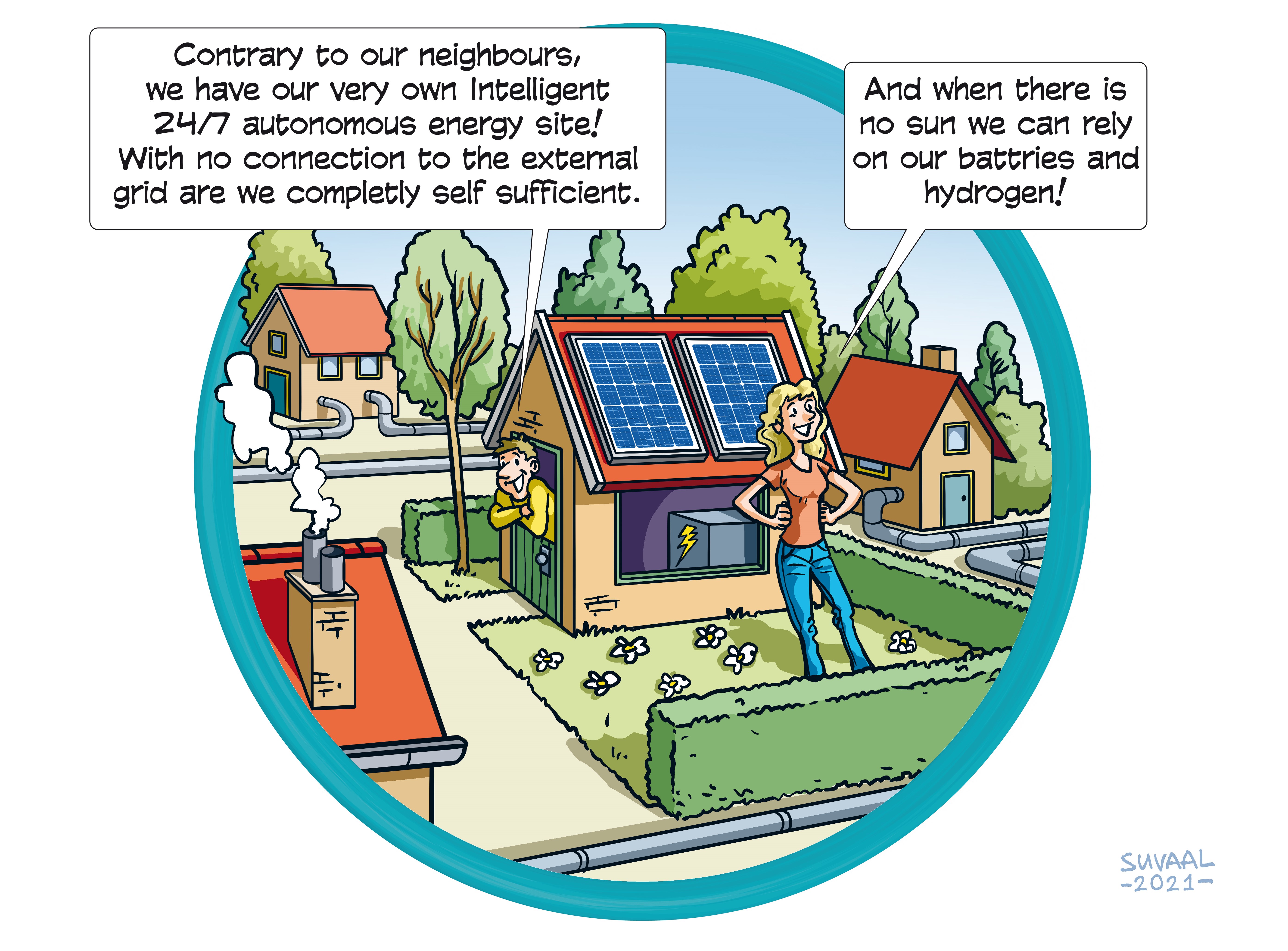24/7 Energy Lab - A local, CO2-neutral energy system for the built environment
Research Themes: Energy, Software technology & Intelligent Systems, Social impact, High Tech


Summary of the project
The 24/7 Energy Lab is located at The Green Village at TU Delft campus. At this site all components that are needed to solely use renewable energy for everything that you would do at home is integrated into one experimental energy system. Everything energy related in a residential house will be at first provided by electricity, even warm water or heating. This house has no cables or pipes that connects it to the external grid. It will demonstrate that with the developed technologies it can function totally autonomous. With PV panels on roofs renewable solar energy is converted into electricity which can be used either directly or can be stored in batteries and/or as hydrogen. And subsequently the hydrogen can be used in a fuel cell to generate electricity when there is not enough sun or wind available. This is the basic set up of the autonomous energy system which can be extended with other technologies and devices over time. Another aspect of the system which will be tested at the site is the control of the energy supply, storage and use to let the system operate as efficient and hence as sustainable as possible.
What's next?
With the realization of the 24/7 Energy Lab the next step is to learn from what happens when different types of technologies & devices – electric vehicles, heat pumps etc. are integrated or connected to the site. Users, construction companies, legislators, municipalities, grid companies and researchers will work together to learn and create new knowledge about how this sustainable energy system can be realized and will function. This learning process will raise new research questions about how to design and expand the system and how it works in a real-life working setting. This will also include legal, socio-economic and governance aspects.
Contribution to the Energy transition?
The realization of this site contributes to the energy transition by demonstrating the integration of the various renewable energy conversion and storage components on residential level. By making households and/or residential areas energy autonomous, fully relying on renewable energy sources, the pressure to expand or replace the underground local grid with thicker cables will be reduced.
prof. dr. Miro Zeman
prof. dr. ir. Zofia Lukszo
dr. Phil Vardon
dr. ir. Martin ten Pierik
Faculties involved
- all faculties of TU Delft